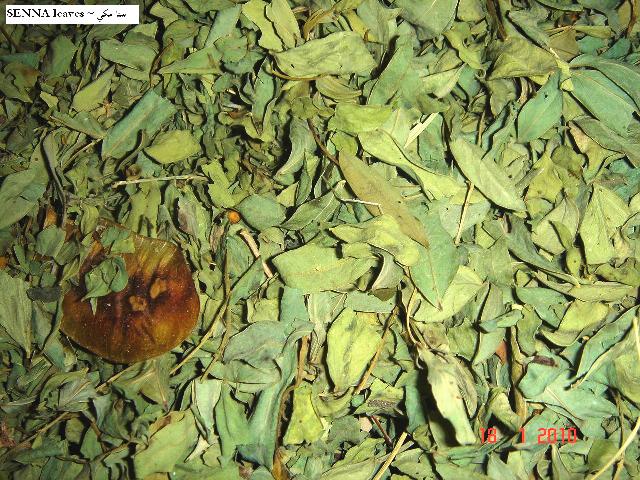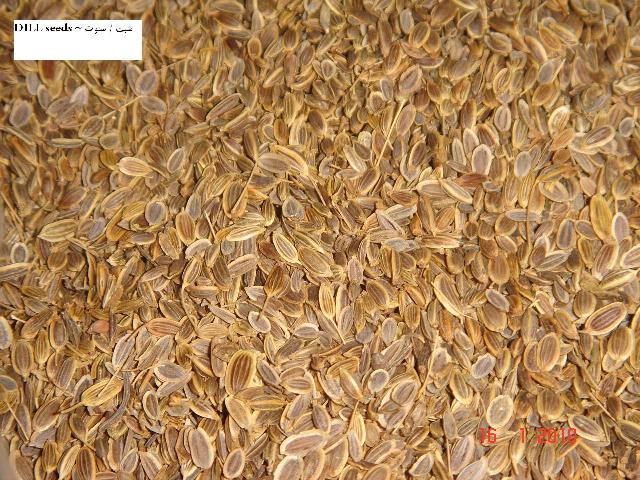Search
Main menu
- Home
- About us
- Online courses
- Tibb-e-Nabawi diet
- Diseases & Remedies
- Healing by Yaqeen
- Healing by Saalehaat
- Dua for Fear & Insomnia
- Dua for Extinguishing FIRE
- Fatihah even for Non-Muslims
- Ruqyah for General Sickness
- Ruqyah for Namlah (Sores)
- Ruqyah for Pains
- Ruqyah for Scorpion's Sting
- Ruqyah for Ulcers
- قُرْآنٌ / Quran
- فاتــحــة الكــتاب / Fatihah-al-Kitaab
- Sadaqah ~ Charity
- Salaat / Prayer
- Saum / FAST
- Healing by Hijaab
- Healing by Foods
- General Principles
- Zabeehah Rules
- The Healing Beverages / Drinks
- Foods ~ From Alif ( أ ) to Baa ( ب )
- Foods ~ From Taa ( ت ) to Raa ( ر )
- Foods ~ From Zaa ( ز ) to Ain ( ع )
- زبـــد / Zubd / Butter
- زنـــجبـــيل Zanjabeel / Ginger
- زَيْتٌ / Zait / Olive Oil
- ســـفرجـــل / Safarjal / Quince
- سِلـق / Silq (Beetroot)
- ســـمــك / Samak (Fish)
- سَمْن / Sam'n / Ghee
- شـــحـم / Sha'hm / FAT
- حنــيذ / شواء / Shiwaa' ~ Haneez
- طــلـــح / Tal'h / Bananas
- عـــدس / Adas (Lentils)
- عــســل / Honey
- عــنب / Enub / Grapes & Zabeeb
- Foods ~ From Qaaf ( ق ) to Yaa ( ى )
- Healing by Herbs
- Healing by Hijamah
- Prophet's Guidance
- Modern ailments
- Formulations
- Recipes
- Blessed Foods / Drinks
- Breakfasts
- Barley Soups
- BARLEY Cakes
- Cottage Cheese / Yogurt recipes
- Fish, Meat & Poultry
- Fruit Ice Creams
- Hais ~Kalaqand / Halwah recipes
- Pickles, Chutneys & Molasses
- Veggies / Lentils / Rice in Olive Oil
- Beetroot Pulao
- Camel's Qeema Pulao
- Red cabbage Pulao
- Bell Peppers in Olive Oil
- Bell Peppers stuffed with Kebabs
- Bitter Gourd in Olive Oil
- Black eyed peas with Beetroot
- Cauliflower in Olive Oil
- Oven Baked Vegetables
- SAAG with Olive Oil
- Sweet Potato Cutlets
- Sweet Potatoes in Olive Oil
- White Beans with Spinach
- Camel's meat Pulao with Red Rice
- Cooking with Olive Oil
- Halal Vinegar Technology
اللَّهُمَّ ارْزُقْنِي حُبَّكَ وحُبَّ مَن يَنفَعُني حُبُّهُ عِنْدكَ، اللَّهُمَّ فَكَمَا رَزَقْتَني ممَّا أُحِبُّ فاجْعَلْهُ قُوَّةً لي فيمَا تُحِبُّ، اللَّهُمَّ ومَا زَوَيْتَ عَنِّي ممَّا أُحِبُّ فاجْعَلْهُ فَرَاغاً لي فيمَا تُحِبُّ يا مُقَلِّبَ القُلُوبِ ثَبِّتْ قَلْبي عَلَى دِيِنكَ
Senna & Sanoot
رَوَى الترمذي فِي جَامِعِهِ وَابْنُ مَاجَهْ فِي سُنَنِهِ مِنْ حَدِيثِ أسماء بنت عميس، قَالَتْ: قَالَ رَسُولُ اللَّهِ صَلَّى اللَّهُ عَلَيْهِ وَسَلَّمَ: بِمَاذَا كُنْتِ تَسْتَمْشِينَ ؟ قَالَتْ: بِالشُّبْرُمِ، قَالَ حَارٌّ جَارٌّ ، قَالَتْ: ثُمَّ اسْتَمْشَيْتُ بِالسَّنَا، فَقَالَ: لَوْ كَانَ شَيْءٌ يَشْفِي مِنَ الْمَوْتِ لَكَانَ السَّنَا
Ibn al Qayyim wrote : In Jami’ al-Tirmidhi and Sunan Ibn Majah, it is narrated from Asma bint Umais, who said: The Messenger of Allah, Prophet Muhammad صلى الله عليه وسلم asked, “What do you use as a laxative?” She replied, “I use Shubrum.” The Prophet said, “It is hot and harsh.” She then mentioned using Sana (a natural laxative), to which he responded, “If anything could cure death, it would be Sana.”
وَفِي سُنَنِ ابْنِ مَاجَهْ عَنْ إِبْرَاهِيمَ بْنِ أَبِي عَبْلَةَ، قَالَ: سَمِعْتُ عبد الله بن أم حرام، وَكَانَ قَدْ صَلَّى مَعَ رَسُولِ اللَّهِ صَلَّى اللَّهُ عَلَيْهِ وَسَلَّمَ الْقِبْلَتَيْنِ يَقُولُ: سَمِعْتُ رَسُولَ اللَّهِ صَلَّى اللَّهُ عَلَيْهِ وَسَلَّمَ يَقُولُ: عَلَيْكُمْ بِالسَّنَا وَالسَّنُوتِ فَإِنَّ فِيهِمَا شِفَاءً مِنْ كُلِّ دَاءٍ إِلَّا السَّامَ ، قِيلَ: يَا رَسُولَ اللَّهِ! وَمَا السَّامُ؟ قَالَ: الموت
In another narration in Sunan Ibn Majah, Ibrahim ibn Abi Ablah reported that he heard Abdullah ibn Umm Haram, who prayed with Prophet Muhammad صلى الله عليه وسلم facing both Qiblas, say: “I heard the Messenger of Allah (peace be upon him) say, ‘Use Sana and Sanoot, for indeed in them there is a cure for every disease, except SAAM.’” It was asked, “O Messenger of Allah! What is SAAM?” He replied, “It is the DEATH.”
The statement of Prophet Muhammad صلى الله عليه وسلم, “What do you use as a laxative?” refers to a method of softening the body so that waste can pass easily and doesn’t remain blocked, causing harm due to retained waste. This is why a laxative is referred to as “mashiyan” (walking or moving), emphasizing its role in aiding movement.
It is said that the term was used because those taking laxatives often need to move frequently due to necessity. In one narration, he asked, “What do you seek a cure with?” and she replied, “With Shubrum,” a strong and drying plant bark known for its powerful laxative effects, though it is generally advised against by physicians due to its extreme potency.
The Prophet’s (صلى الله عليه وسلم) description of Shubrum as “hot and harsh” highlights its strong purgative properties. The word “Haar” (hot) is emphasized by the word “Jaar” or “Yaar” to intensify the effect.
Shubrum is among the purgative medicines. It is the bark of the root of a tree, and it is extremely hot and dry in the fourth degree. The best type is reddish, light, thin, and resembles rolled-up leather. Generally, it is one of the medicines that physicians have advised against using due to its danger and its excessive laxative effect."
Sana is a medicinal plant, with the best variety coming from Makkah. It is a safe, balanced remedy that is mildly hot and dry, and it effectively expels yellow and black bile, strengthens the heart, and is beneficial against anxiety and bodily pains. It opens up obstructions, is good for hair loss, lice, chronic headaches, itching, and skin issues. Drinking Sana as a decoction (boiled in water) is preferable to consuming it as a powder.
Al-Razi states that both Sana and Shahtraj (FUMARIA~a herb) purify the burned humors in the body and relieve scabies and itching.
Regarding the term Sanoot, there are eight interpretations:
- Some scholars say it refers to honey.
- Others say it is the thick layer on top of ghee that sometimes has black streaks. This was reported by Amr ibn Bakr Al-Saksaki.
- Another view is that Sanoot is a seed similar to cumin but not actually cumin, as stated by Ibn Al-A'rabi.
- It could also be a type of cumin known as Kermani cumin.
- Some say it is Razianaj (FENNEL seeds). These two interpretations were reported by Abu Hanifah Al-Dinawari from some Arabs.
- Another view is that it refers to Dill.
- Some believe it refers to dates. These two interpretations were mentioned by Abu Bakr ibn Al-Sunni.
- Lastly, some say it is honey found within bags of ghee, an opinion shared by Abdul Latif Al-Baghdadi, who states that this view is the most likely correct interpretation.
According to some physicians, this interpretation makes the most sense and is closest to the intended meaning. It suggests that Sanoot is honey mixed with ghee, which, when combined with powdered Sana and consumed as a paste, enhances its effectiveness. The honey and ghee improve the Sana’s effectiveness as a laxative.
Sana by Dawood Antaaki: It is a spring herb resembling Henna, but its stem is finer than henna and has a softness. Its flowers tend toward blue and it produces a pod inside which is a flat seed, elongated and somewhat crooked in the middle. There is a variety of it with broader leaves and yellow flowers, known in Hijaz as Ushraq, which is harvested in the summer. The best quality is the one from Hijaz, and its potency lasts for seven years. It is hot in the second phase of its effect and dry in the first phase. In the first phase, it helps in expelling the three bodily humors (yellow bile, black bile, and phlegm) and removes the sticky substances from the body, cleanses the brain from chronic headaches and migraines, and relieves pain in the sides and hips, especially when cooked in four parts of oil until half of it evaporates. It also treats hemorrhoids and back pain.
If it is boiled in vinegar until it solidifies, it eliminates itching, scabies, freckles, and pimples, heals old wounds, prevents hair loss, and can darken and lengthen hair when used as an ointment. However, it causes discomfort, nausea, and vomiting, which can be alleviated by purifying it from its stem and mixing it with oils and other herbs like aniseed. Its dosage is up to three dirhams when mixed, and up to ten dirhams when boiled. When used alone, its dose is doubled, and when cooked in vinegar, its potency increases.
Sana by Ibn al-Baytaar: The best quality Sana comes from Makkah.
Umayya bin Abi al-Salt: Sana is hot and dry in the first phase. It helps in treating yellow bile, black bile, and phlegm, and it penetrates deep into the muscles and joints. Therefore, it is beneficial for conditions like gout, sciatica, and joint pain caused by excess yellow bile, black bile, and phlegm. The recommended dose for medicinal use is between four to seven dirhams of Sana in a cooked mixture.
Ishaq bin Haneen: The ancient physician said that Sana is beneficial for treating melancholia (black bile diseases), splits in the hands, muscle cramps, hair loss, tinea (ringworm), snake and lice bites, old headaches, scabies, pimples, itching, and epilepsy.
Habish bin al-Hasan: Sana is hot and dry with a moderate degree of heat and dryness. It has a sharp taste when consumed in the stomach, but it strengthens the heart. If mixed with other beneficial herbs like violet, it becomes more beneficial. Drinking its water cooked is better than consuming it ground.
Sharif: If Sana is taken with olive oil, it effectively removes toxins from the body. It is also beneficial for back and hip pain.
What Modern Medicine Says About Senna: Many studies have been conducted on the leaves and fruits of Senna, and these studies have confirmed its effectiveness as one of the best laxatives, in addition to its benefits for blood purification and its ability to combat viruses and fungi. Pharmaceutical companies have produced many Senna-based products. The Senna plant is considered one of the important plants registered in the pharmacopoeias of Europe, America, India, and China, and there are various products marketed worldwide.
There is no doubt that Senna is one of the best laxatives. Its effect begins only in the colon, where it is broken down by colonic bacteria. Therefore, it does not affect the stomach or small intestine, and it does not interfere with the absorption of food after diarrhea, as some other laxatives do, which may cause sluggish bowel movements, leading to constipation after diarrhea, forcing the person to continue using the laxative. Another advantage of using Senna is that a person can plan the most convenient time for its use. Its laxative effect begins 8-10 hours after consumption and is not absorbed by the intestines.

Sana Makki

Dill Seeds (a kind of Sanoot)
 Online Guests
Online Guests
We have 398 guests and no members online

